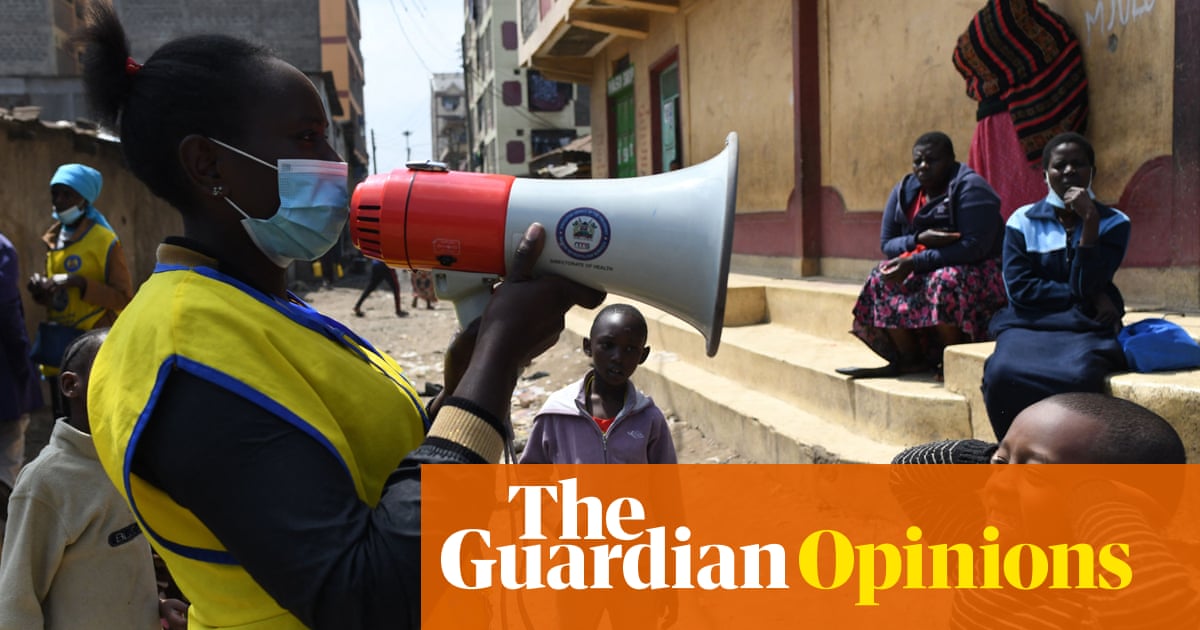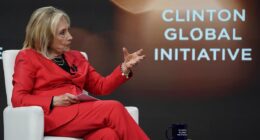Share this @internewscast.com

We forgot about measles. And tetanus and diphtheria. And polio. In the race to vaccinate the world against Covid-19, the global drive to suppress some of the biggest killers in history has fallen back.
Almost 12n doses of Covid-19 vaccine have been administered in less than 18 months – a stunning achievement, even if the global distribution has been uneven. Yet more than 30 million children have missed out on other basic vaccinations during the pandemic, with south-east Asia and the eastern Mediterranean region being the worst hit. This means large numbers of young people will be vulnerable to diphtheria, pertussis (whooping cough) and tetanus, as well as measles – a disease that continues to kill tens of thousands of people every year.
Part of the decline in routine vaccination will have been because of clinics closing and staff being diverted, or falling ill themselves – problems that will gradually improve as health services begin returning to normal. But there are also people who haven’t accepted vaccines for themselves or their children when they’ve been offered them.
Given the dangerous dip in vaccination levels, the challenge of building trust in vaccines has now become more important than ever as we enter World Immunization Week. The good news is that we now know a lot about how to increase vaccine uptake, and the pandemic has taught us some important lessons.
First, while the past few years have, perhaps understandably, increased many people’s hostility towards those who refuse vaccines, lumping them together into a homogenous group of “anti-vaxxers” is unwise – especially as dialogue with these groups is crucial to increasing the overall vaccine uptake. Some find this term offensive: they may not be “anti” anything but have questions or concerns about a vaccine or vaccines.
The reality is that vaccine hesitancy is a spectrum. At one end are the hardliners whose appetite for absorbing attention is insatiable but who are not for changing. At the other are those whose views are not yet permanently fixed.
In Target the Fence-Sitters, a landmark 2011 Nature paper, Prof Julie Leask of the University of Sydney, made the case for engaging with those who can be won over. Coaxing – or insulting – the hardliners is a waste of energy, and risks nudging mildly hesitant people in the wrong direction.
More than a decade on from that much-cited publication, research on why people vaccinate (or not) is mounting. Some of this has been applied to good effect during the Covid-19 rollout, yet there is still much to learn.
One important problem is that vaccine conversations have become more polarised and political during the pandemic. Health authorities need to work on reducing the “cost” of changing one’s mind about vaccination. Doing a U-turn doesn’t feel good. If choosing to vaccinate is seen as a personal capitulation or political concession then it becomes deeply unconformable.
No political grouping has a monopoly on absorbing vaccines into their worldview. In the US, right-leaning voters are less likely to be vaccinated; in the UK, Tory-voting constituencies are more likely to be vaccinated. Meanwhile, “wellness influencers” are a growing source of vaccine misinformation as part of what Prof Heidi Larson, of the Vaccine Confidence Project, calls the “pursuit of purity”.
As vaccination is increasingly wrapped up in people’s identity, attitudes can calcify quickly. The trouble with this is that it can make people feel as if they are betraying themselves or their “tribe” if they later opt to be vaccinated. And once someone has opted out of one vaccine, they become more likely to opt out of others. This means those who refuse a Covid jab might not take their next flu vaccine. Uncoupling vaccines from people’s philosophical, religious or political attitudes prevents hesitancy hardening into refusal.
Politics aside, there are more practical steps that can be taken to improve vaccine uptake. For starters, there is evidence that “presumptive recommendations” can increase acceptance, so instead of opening a debate on vaccines with every patient or parent, doctors might say, “It’s time for Charlie’s measles jab” rather than, “Would you like to make an appointment for Charlie’s measles jab?”. Engaging in greater depth would happen with those who have questions.
For those who are hesitant, motivational interviewing – a time-consuming but effective way to inject a little empathy into doctor-patient conversations on vaccination – has also shown promise in improving vaccination receptiveness by discussing individual drivers of scepticism.
The crucial skill is listening. Doctors ask their patient to voice their concerns about vaccines, offering specific responses in a non-judgmental manner. Both parties accept that they may not see vaccines in the same way but are open to discussion. This takes the heat out of any potential conflict and leaves the door open to a change of heart.
In 2014, a report by a WHO working group set out the 3Cs of vaccine hesitancy: convenience, complacency and confidence. Easy access to free immunisation may be a bigger challenge in the global south, but convenience is too often overlooked while we obsess about confidence.
The best way to find out why people skip vaccines is to ask them. When measles outbreaks gripped orthodox Jewish communities in London, it may have been tempting to imagine a religious or philosophical objection to the MMR vaccine. But when asked, parents – many of whom had large families – cited as an obstacle the inconvenience of taking several children across the city on public transport. Service providers responded by scheduling clinics nearby on days that suited the community, supported by information leaflets and reminders.
Complacency matters too. To reach herd immunity against measles, uptake needs to hit about 95%. But once the virus is suppressed this can slip, opening the door to a resurgence.
Confidence, of course, is still hard won and easily lost. But there are lessons that Covid campaigns – and rejuvenated routine immunisation drives – can learn from how dips in public trust in other vaccines have been reversed.
When HPV vaccination rates in Ireland fell from 87% to 50% in 2015, a broad alliance of health professionals, teachers, parents, cancer societies and children’s advocacy groups came together to show their support for the campaign. A media campaign fronted by a high-profile cervical cancer patient helped Ireland to arrest the decline and made vaccination the norm.
To the credit of some health authorities, several Covid-19 immunisation campaigns have adopted personalised vaccine invitations and made vaccinations more convenient by allowing community pharmacists to offer the jab.
Most have avoided the kind of blunt myth-busting and debunking that can backfire, instead finding ways to apply science communication research and tackle misinformation in the real world. There is a growing acceptance that facts alone are not enough to win people over.
Australia has developed decision aids to walk people through the pros and cons of signing up, the US has been quick to try mobile pop-up vaccine clinics, and Romania has offered jabs at popular tourist spots (including Dracula’s castle).
And aside from Emmanuel Macron’s ill-advised pledge to “piss off” the unvaccinated, France has recorded stellar uptake of Covid-19 vaccinations – despite being dubbed “the most vaccine-sceptical country in the world” and polling indicating that French people would shun the vaccine. The lesson: even countries steeped in vaccine scepticism can turn things around if they get the incentives right.
Now it’s time to apply all of this with unprecedented energy to closing the immunisation gaps that have emerged during the pandemic. The goal should be to regain lost ground as quickly as it was lost and go the extra mile to reach those who have never received a vaccine dose.
Source: This post first appeared on The Guardian















